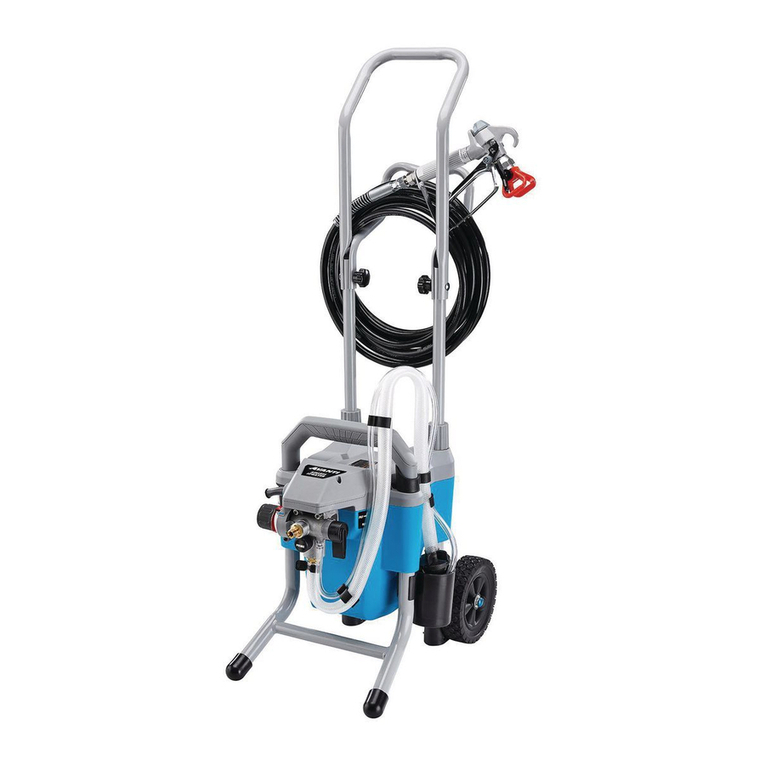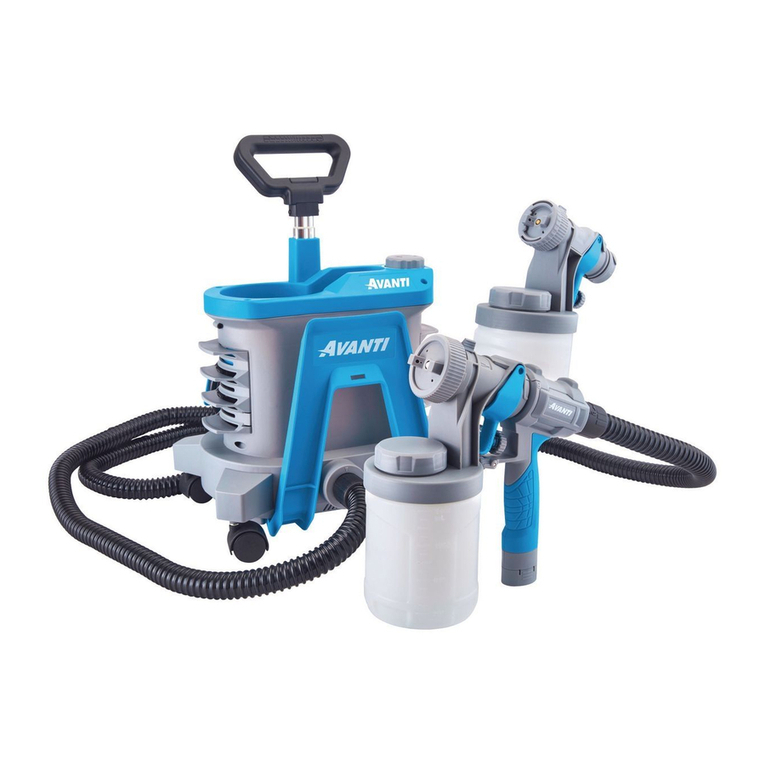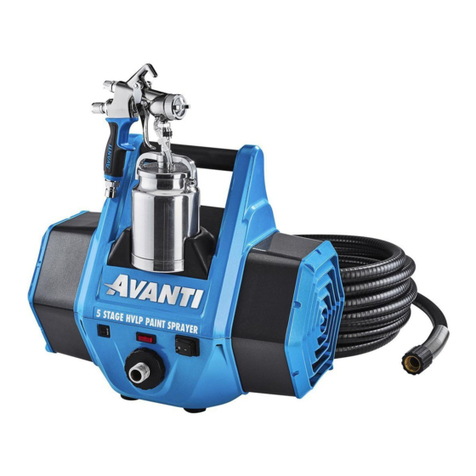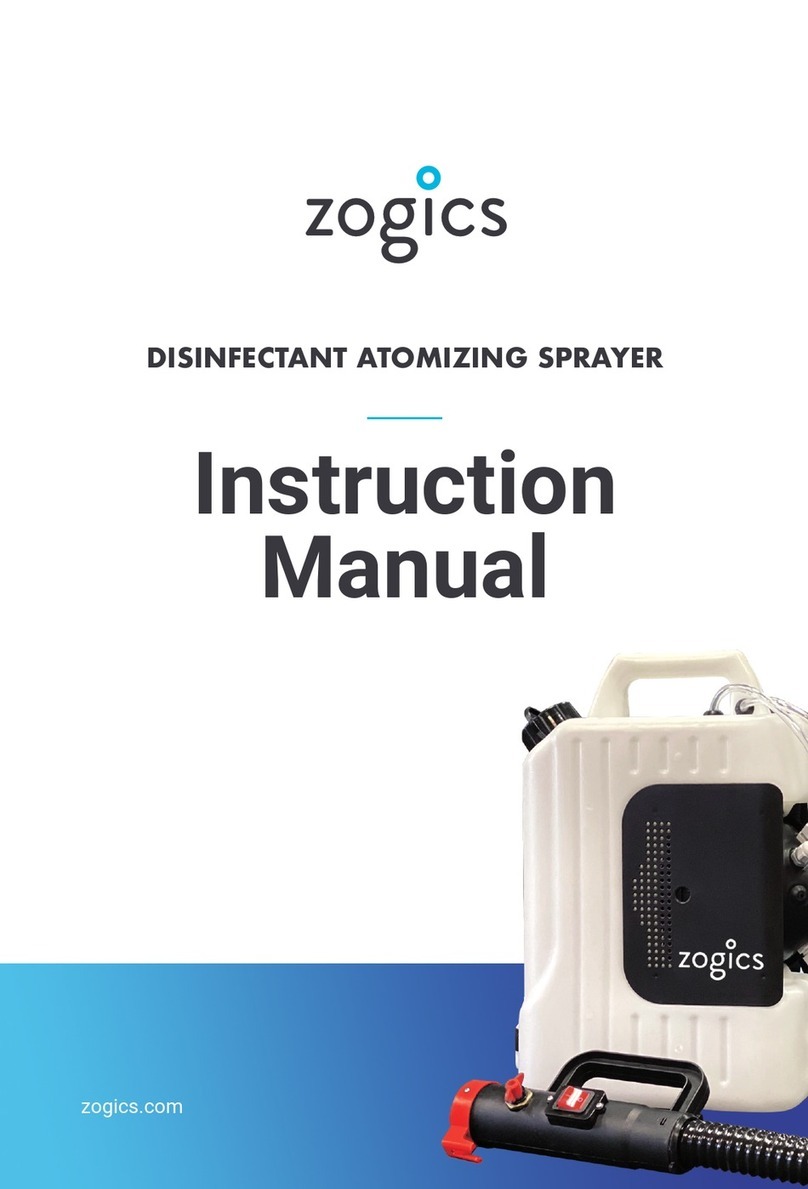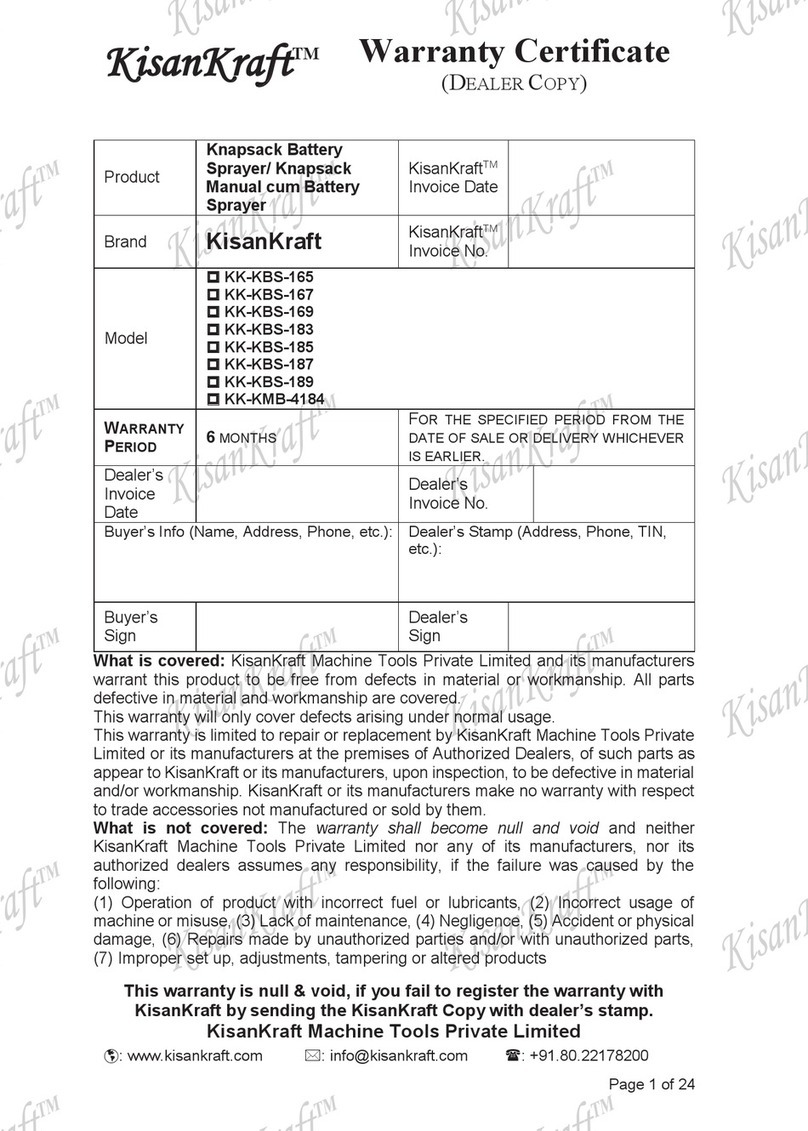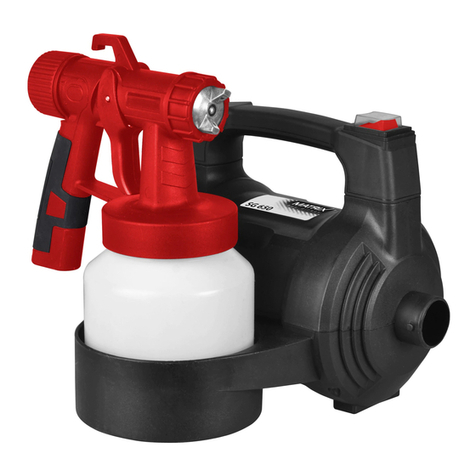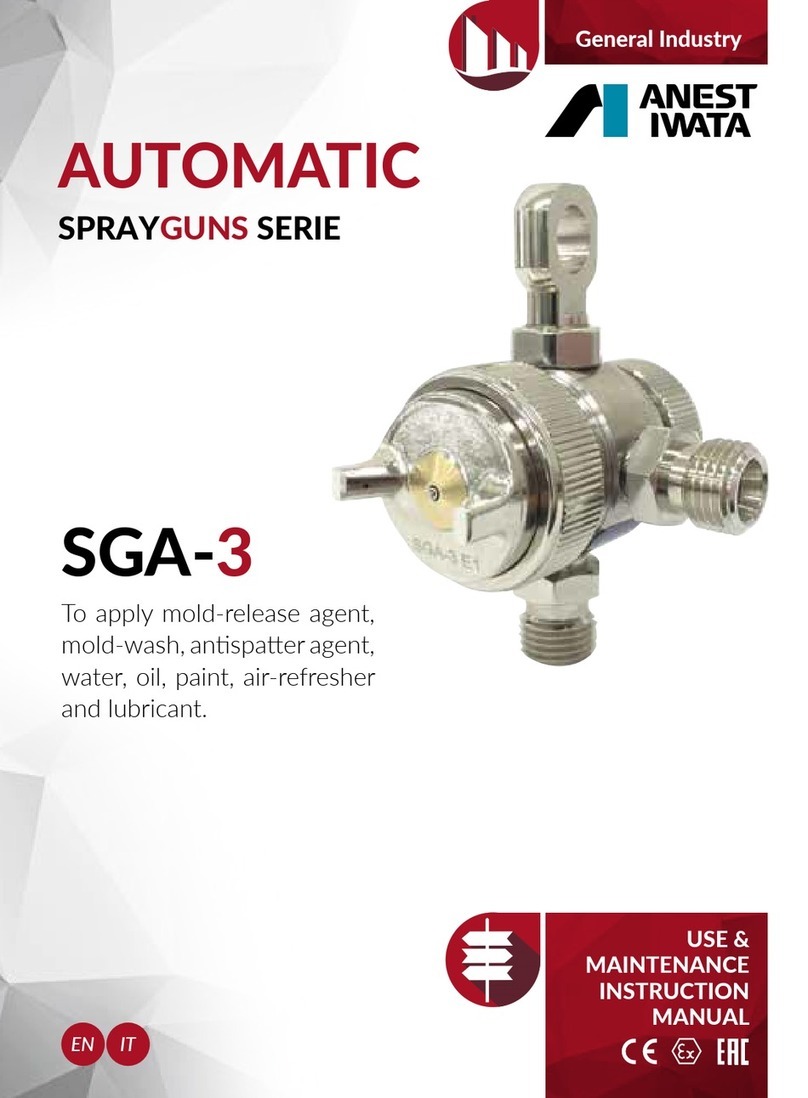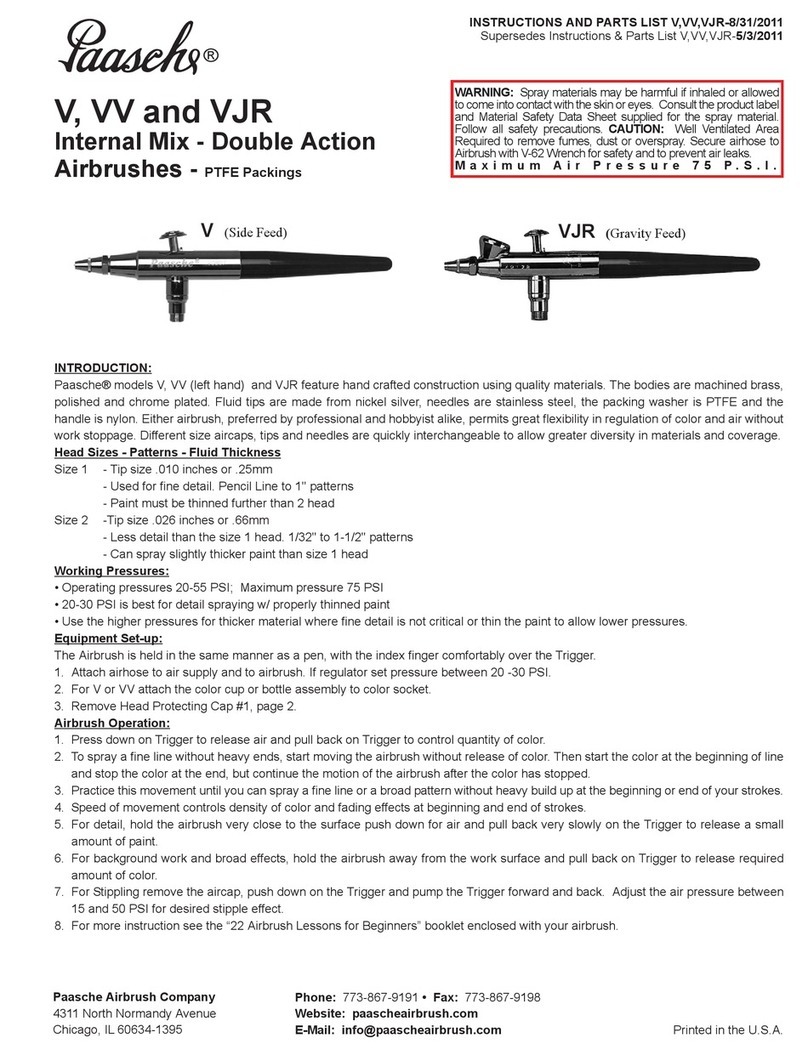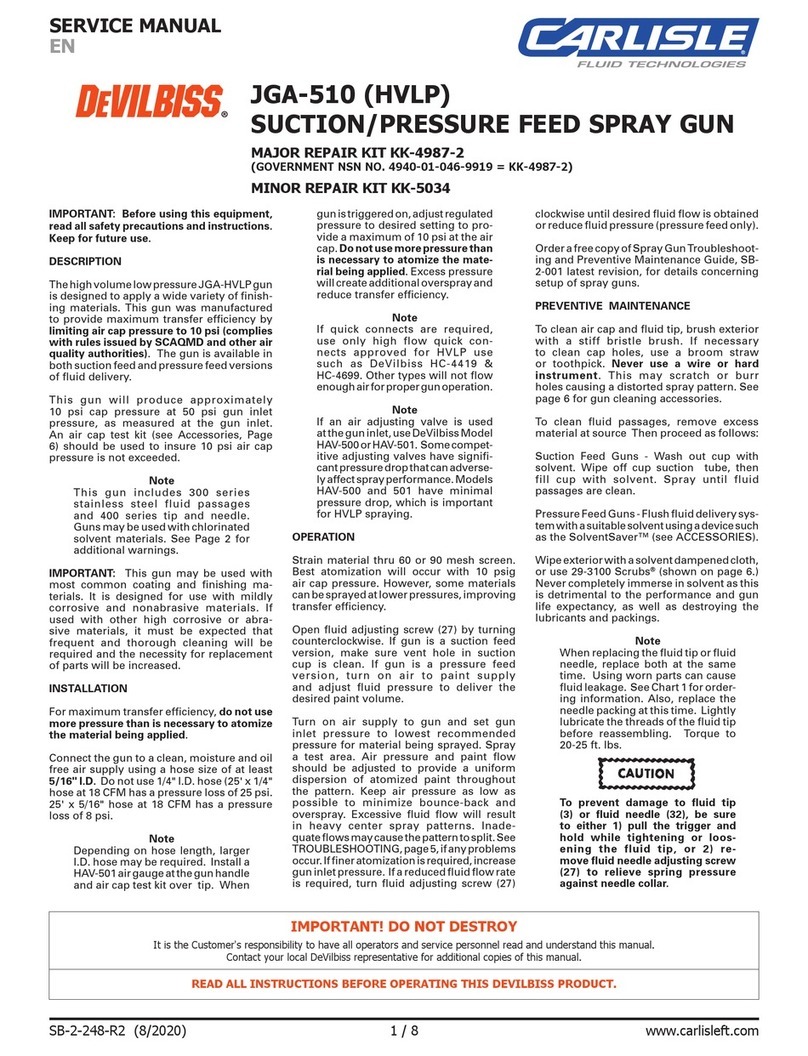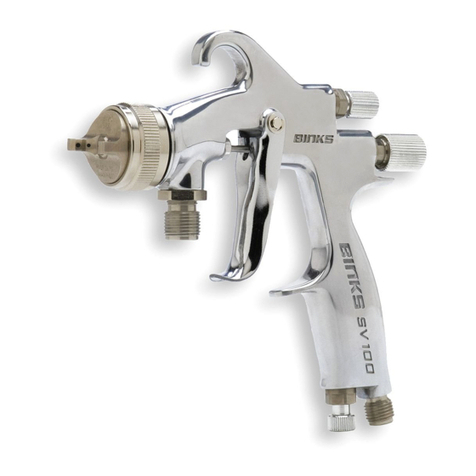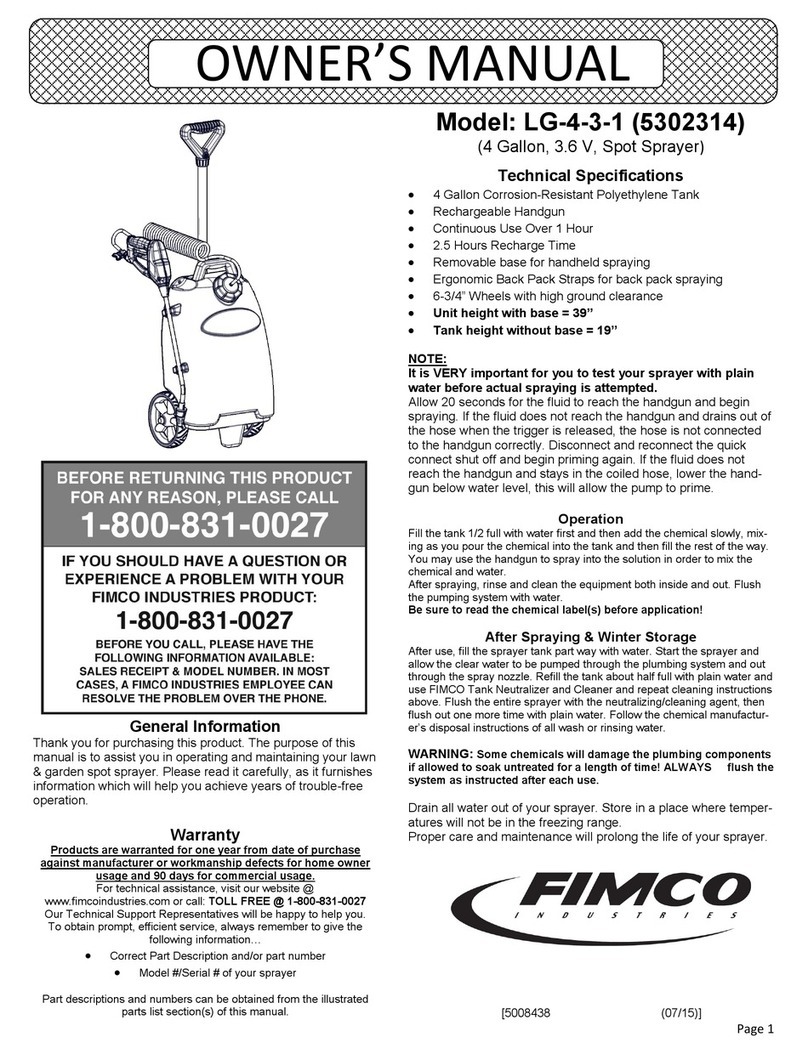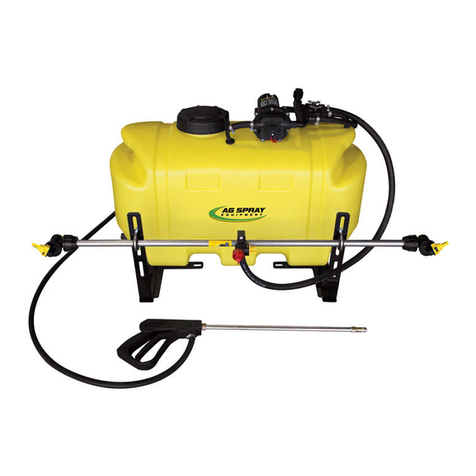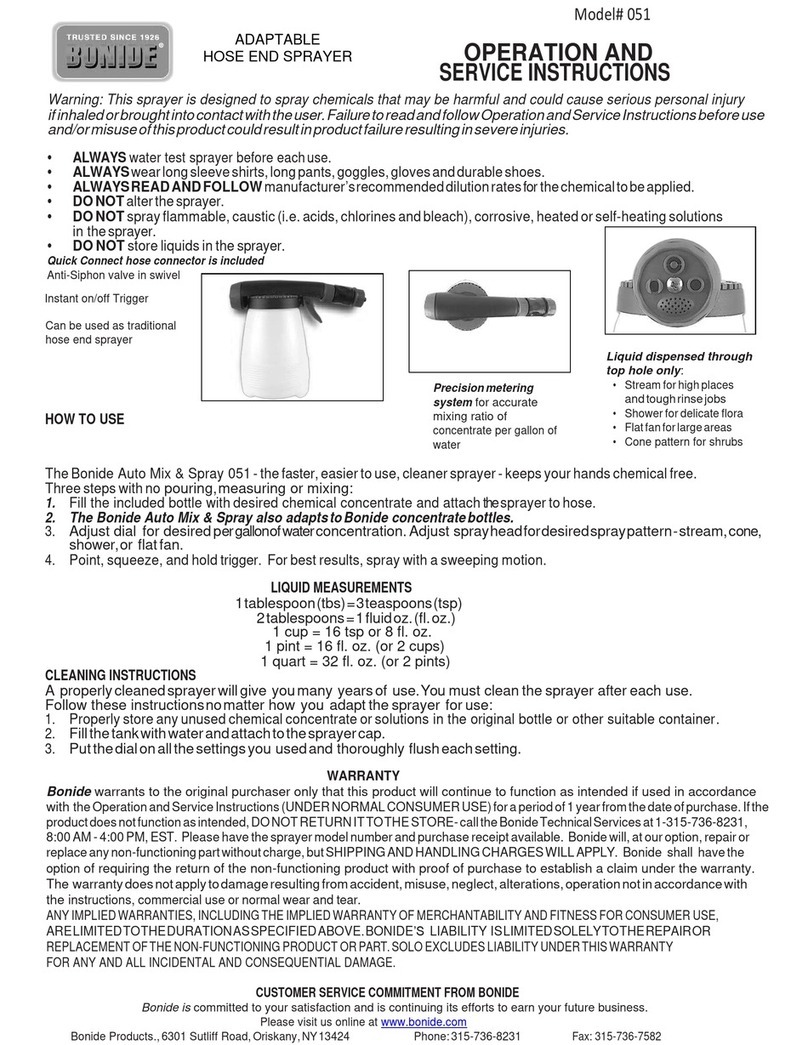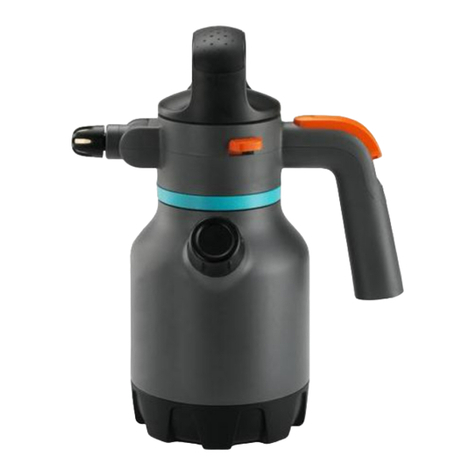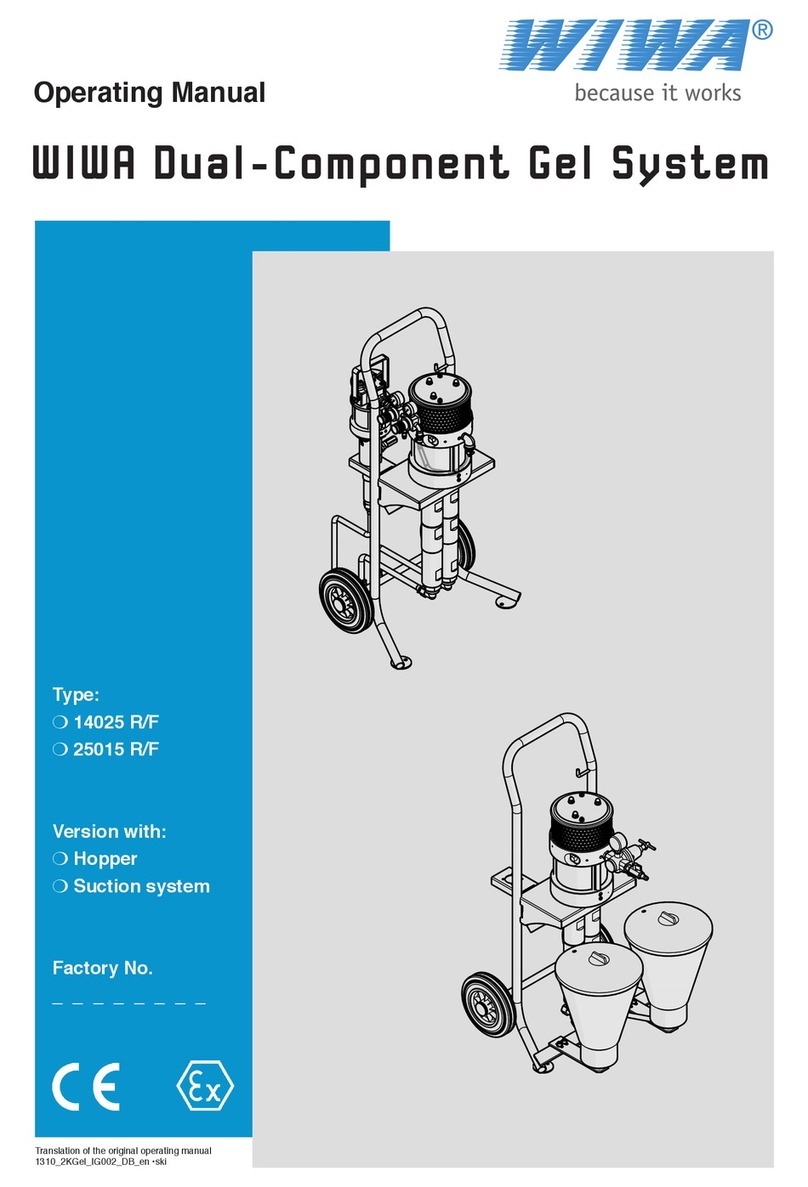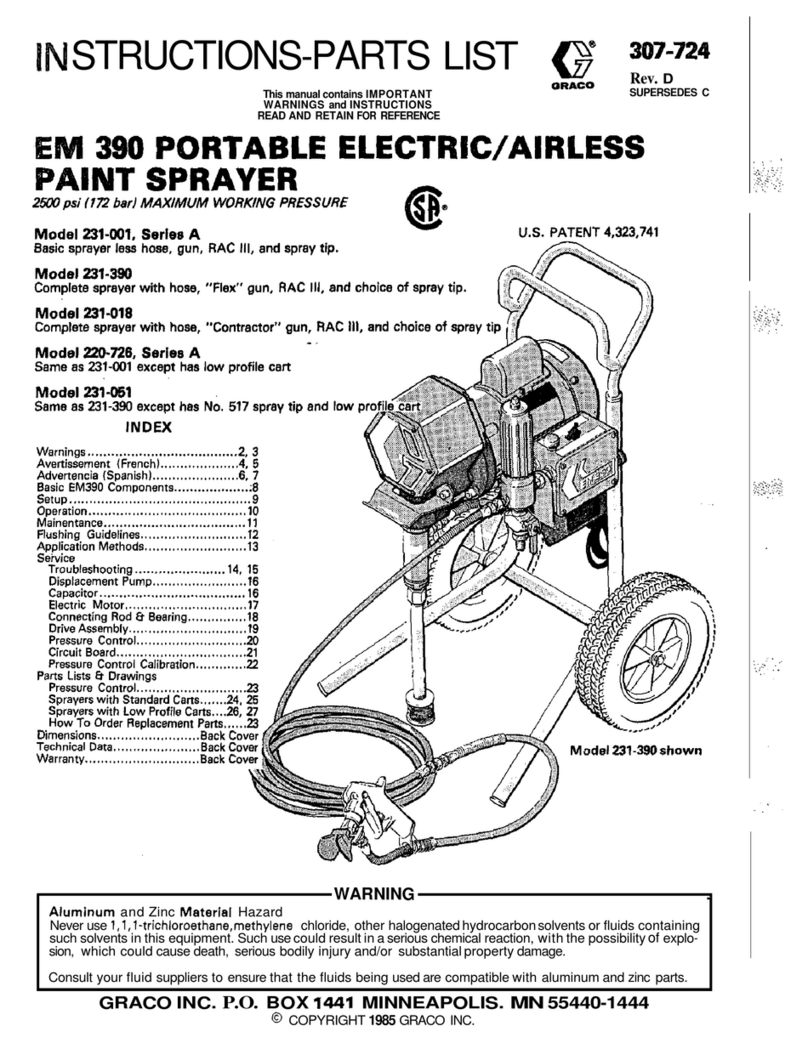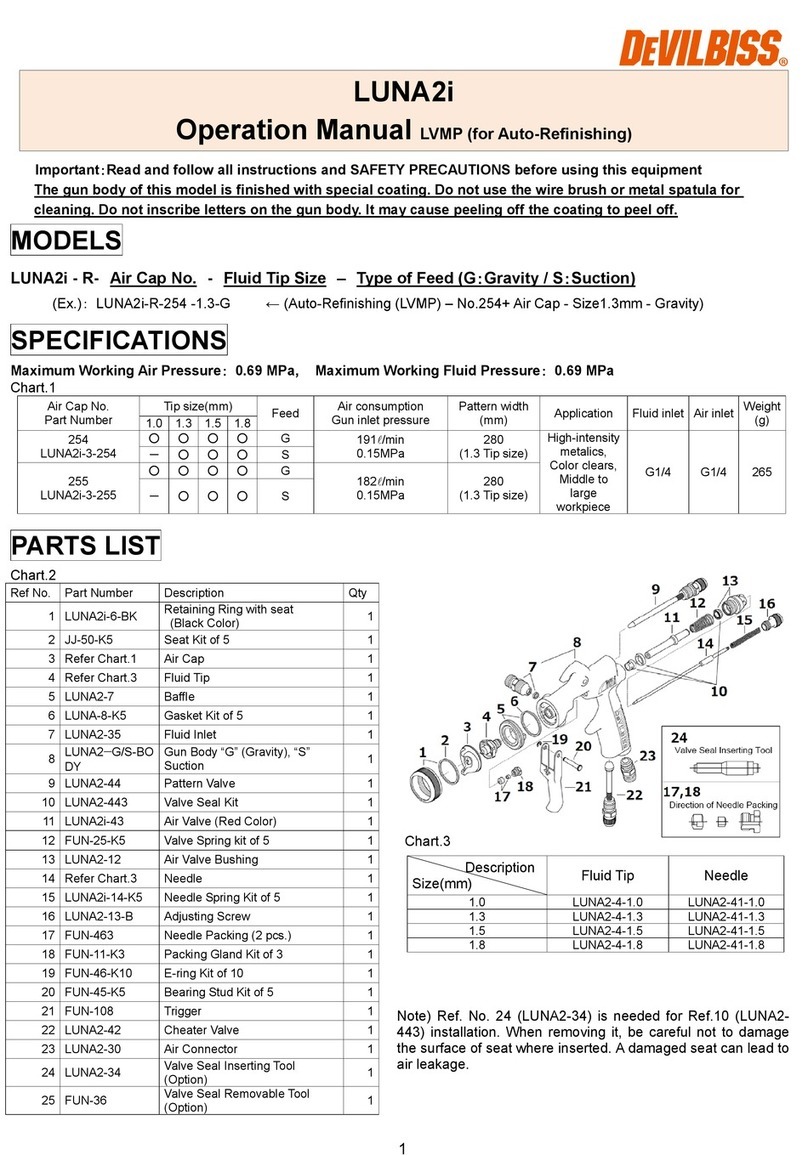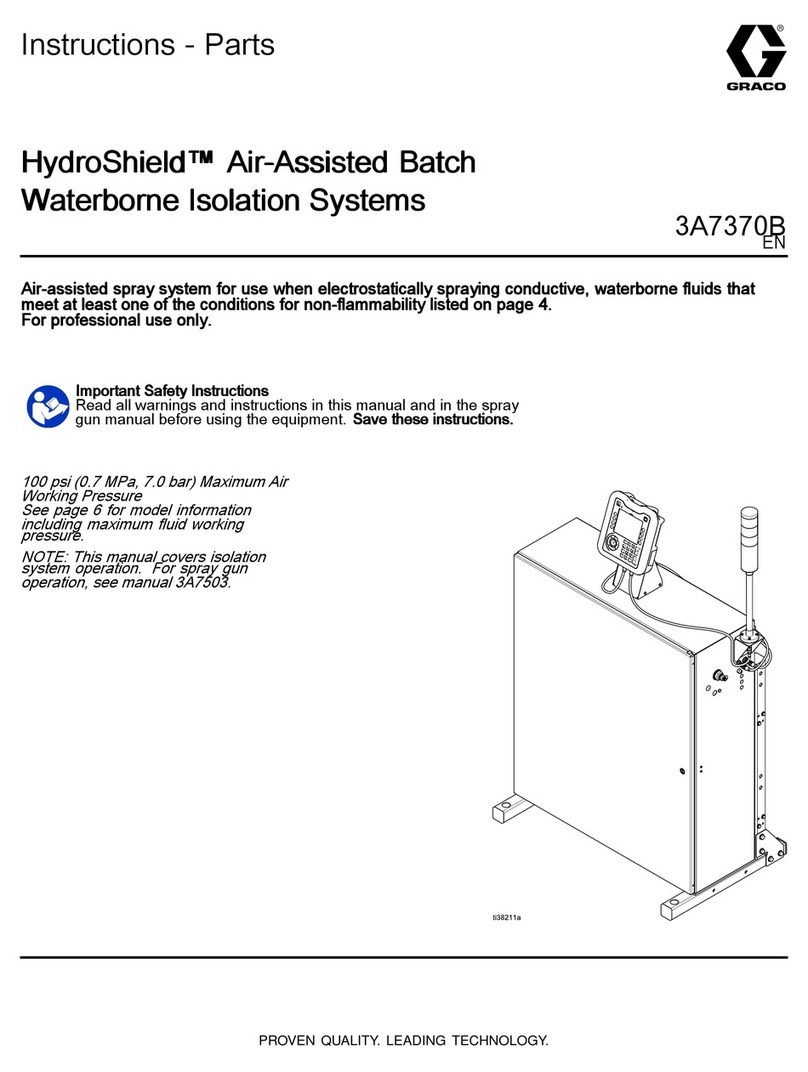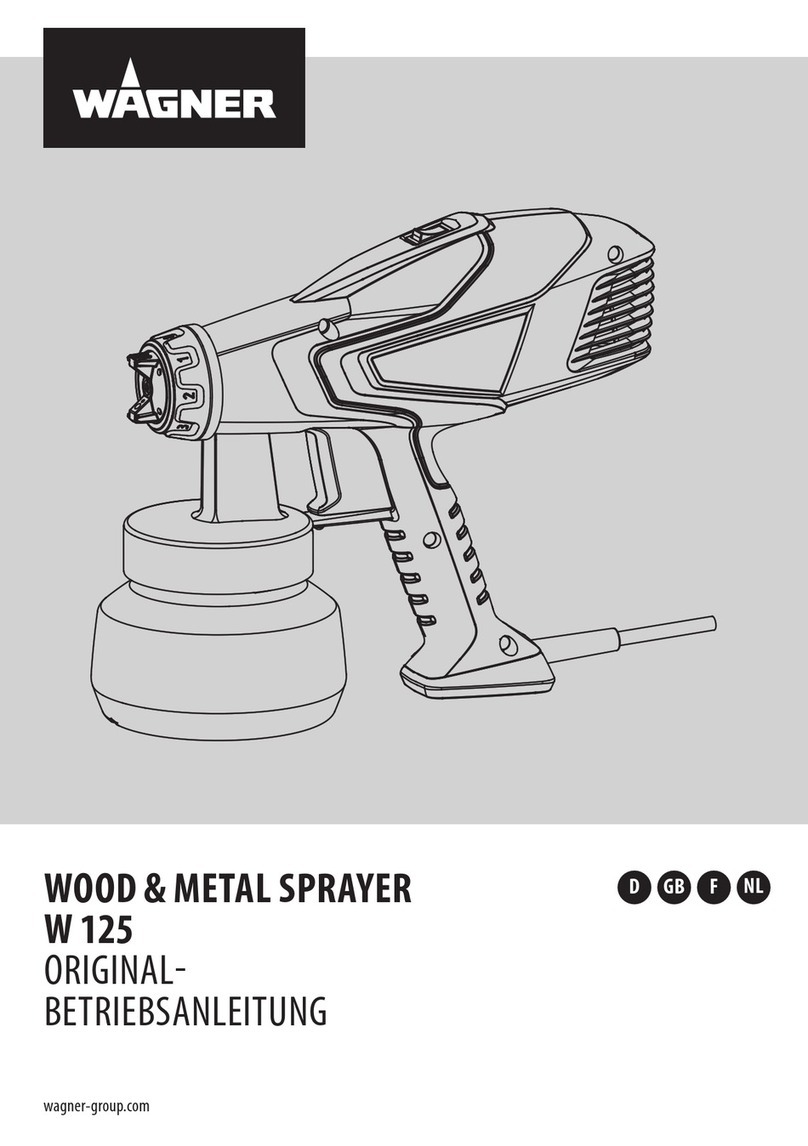
Page 5For technical questions, please call 1-888-866-5797.Item 58056
RETURNS NOT ACCEPTED & WARRANTY VOID
if Spray Gun is not properly cleaned immediately after every use.
Clean Spray Gun immediately to prevent permanent damage.
SAFETYOPERATIONMAINTENANCE SETUP
Specific Safety Instructions
1. INJECTION HAZARD!
Although this paint gun is airless,
it still puts out paint at a very high
pressure. Through improper
use, paint can be injected through a person’s
skin, leading to serious injury, possibly
amputation. If paint is accidentally injected into
someone’s skin, contact a doctor immediately.
Do not treat an injection injury as a simple
cut. Injection can lead to amputation and
requires immediate surgical treatment.
2. Do not direct spray at people or animals. Do
not place your hand in front of Spray Gun’s
nozzle or attempt to deflect paint spray
with your hand during use. Gloves and
clothing don’t offer adequate protection
from toxic paints, sealers, or stains.
3. Do not spray flammable materials in vicinity
of open flame or near ignition sources.
Motors, electrical equipment, and controls
can cause electrical arcs that will ignite a
flammable gas or vapor. Do not store flammable
liquids or gases in vicinity of this unit.
4. Do not come into contact with a fluid stream
created by a leak in the paint hose.
5. Do not leave Paint Sprayer pressurized
while unattended.
6. Do not clean Spray Gun tip while it
is still connected to paint hose.
7. Keep the trigger and the electrical
cord plug clean and paint-free.
8. Do not use Spray Gun to spray asbestos,
metallic paints, glazes, red lead,
cement, ground chalk, abrasive grainy
paints containing lime, or bleach.
These will damage the spray gun
and void the warranty.
9. Read all of the information concerning coating
products and cleaning solvents. Do NOT use
bleach, low-flash naphthalene, acetone, alcohol or
toluene when cleaning Paint Sprayer equipment.
10. Do not use bleach or halogenated hydrocarbon
bromine, carbon tetrachloride, and ethyl iodide).
Long term exposure to many chlorinated
hydrocarbons through inhalation can result in liver
and kidney toxicity. Exposure of unprotected skin
to the solvents used can cause defatting of the
skin resulting in dermatitis. Methylene chloride
and vinyl chloride have also been shown to be
human carcinogens. Some of these solvents are
flammable. Welding operations near the these
materials can create phosgene, a highly toxic gas.
11. Many spray guns contain aluminum,
which reacts strongly to chlorinated solvents.
Contact the solvent or coating manufacturer as
needed regarding potential chemical reactions.
12. Industrial applications must follow
OSHA requirements.
13. Spraying hazardous materials may result in serious
injury or death. Do not spray pesticide, acid,
corrosive material, fertilizer, or toxic chemicals.
14. Paints and solvents may be harmful or fatal if
swallowed or inhaled. Avoid prolonged skin
contact with solvents or paints as they will
irritate skin. After any contact, immediately
wash off exposed area with hot, soapy water.
15. Use caution while spraying on windy days.
16. Do not use Spray Gun without
the nozzle guard in place.
17. Remove Spray Tip or turn to cleaning
position BEFORE cleaning or
flushing Paint Sprayer system.
18. Do not use pliers to tighten or loosen
high pressure connections.



